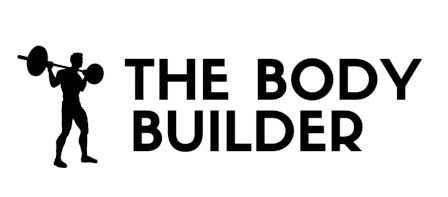1. KIDNEY FUNCTION
Most people belive that kidney function is only to extract excess water and waste products from the body however there is so many other functions
- Excretion of waste and toxins
- Regulation of ion concentrations
- Regulation of PH (acidity and alkaline)
- Balance of body fluid (Water)
- Production of hormones to regualate blood pressure
- Production of Vitamin D
- Regulation of osmolarity
- Control red blood cells production

2. CHRONIC KIDNEY DISEASE
It is a chronic disease that causes a kidney to decrease its function over time, some are born with it and some carry the genetics of the chronic disease which start to appear after some time and is inherited
other diseases that lead to kidney problems:
GENERAL
1. Diabetes
2. High blood pressure
3. Kidney stones (whether inherited, contaminated water, certain medications, urinary infections, an overdose of calcium)
BODYBUILDING
1. Supplements overdose whether whey protein or other supplements
2. Excessive eating of protein vs your body weight
3. Overdose of creatine
4. Excessive use of Anabolic steroids especially oral

3. KIDNEY HEALTH FOR BODYBUILDING
We all know the excessive food we have to consume, supplements and for enhanced bodybuilders steroid cycles, so in order to continue in bodybuilding to an older age we need to make sure we are not hurting our kidneys
now you are all thinking shall we stop steroid cycles, shall we stop whey protein well not at all..
3.1 PROTEIN INTAKE
According to (body lean weight, activities and training intensity, diet, goals, body type, age)
so starting from 1 gram per kg of bodyweight all the way up to 3.3 grams per kg of bodyweight so

Dosages
1. If you’re sedentary, aim for 1.2–1.8 g/kg (0.54–0.82 g/lb)
2. If you’re of healthy weight and active and wish to keep your weight, aim for 1.4–2.0 g/kg (0.64–0.91 g/lb)
3. If you’re of healthy weight and active and wish to build muscle, aim for 1.6–2.4 g/kg (0.73–1.10 g/lb)
4. If you’re overweight, aim for 1.2–1.5 g/kg (0.54–0.68 g/lb).
5. if you are a bodybuilder you should maintain a minimum of 2.0 g/kg (0.91 g/lb) and when doing two sessions or on a steroid cycle or doing lot of giant sets and cardio you should increase up to 3.3 g/kg (1.5g/lb)
6. If you’re pregnant, aim for 1.7–1.8 g/kg (0.77–0.82 g/lb)
7. If you’re lactating, aim for at least 1.5 g/kg (0.68 g/lb).
8. If you’re vegan or obtain most of your protein from plants, then your protein requirements may be higher because plant-based proteins are usually inferior to animal-based proteins
So when do you really have to up your protein intake…
For bodybuilders and athletes who prepare for a competition you start to do two sessions per day, working out changes to super sets or giant sets also the diet changes to a moderate carb then your body will need a much higher quantities of protein in order to recover otherwise your muscles will turn to a fatigue phase
, in that case, protein intake has to increase to 3 or 3.3 grams per kg of body weight

3.2 STEROID INTAKE (PERFORMANCE ENHANCING DRUGS)
in the old days we used to see so many oral steroids which was too toxic on the kidneys and has now mostly changed to an injectable form which is less harm on kidneys so in order to avoid harming the kidney if you run anabolic steroid cycle you have to do the following:
1. full blood work before enagaing on any cycle
2. keep testosterone dosages as low as possible per week so never exceed a dose of 600 mg per week or less
3. Make sure steroid cycle does not exceed 16 weeks by all means
4. After a steroid cycle make a complete cleaning for your system
5. Drink lots of water
6. make a blood work at the end of your cycle
P.S. Make sure to to be under a supervision of your doctor and your trainer during your whole cycle
other ways to keep your kidneys safe:
1. Drinking water and tea regularly during the day
2. Use himalayan salt or rock instead of regular salt
3. Post a high protein diet make a 30 days cleansing which is keeping protein at minimum eating more vegitables and fruits
4. keep three month rest after a steroid cycle
5. For creatine intake every three month take one month off
:max_bytes(150000):strip_icc():format(webp)/lemon-and-flower-in-tea-674084902-5a2419c3482c520037d4de79.jpg)
Other drinks to cleanse the kidney
- Beet juice.
- Watermelon.
- Lemon juice.
- Cranberry juice.
- Pumpkin seeds.
- Smoothies.
- Ginger.
- Turmeric
- Barley
Refernce
https://mcb.berkeley.edu/courses/mcb135e/kidneys.html
https://www.kidney.org/kidneydisease/howkidneyswrk
https://examine.com/guides/protein-intake/
https://www.verywellhealth.com/kidney-cleanse-89121
FAQs
How can I improve my kidney health?
To improve kidney health, drink plenty of water, maintain a balanced diet low in sodium and processed foods, exercise regularly, control blood sugar and blood pressure, avoid excessive use of over-the-counter painkillers, and don’t smoke or consume excessive alcohol.
What are the first signs of kidney problems?
The first signs of kidney problems often include changes in urination (frequency, color, pain), swelling in the ankles, feet, or hands, fatigue, shortness of breath, and a metallic taste in the mouth or bad breath.
How do I clean my kidneys naturally?
To cleanse your kidneys naturally, stay well hydrated, consume a healthy diet rich in fruits and vegetables, limit salt and processed foods, avoid excessive alcohol and smoking, and engage in regular physical activity to maintain overall health and kidney function.

